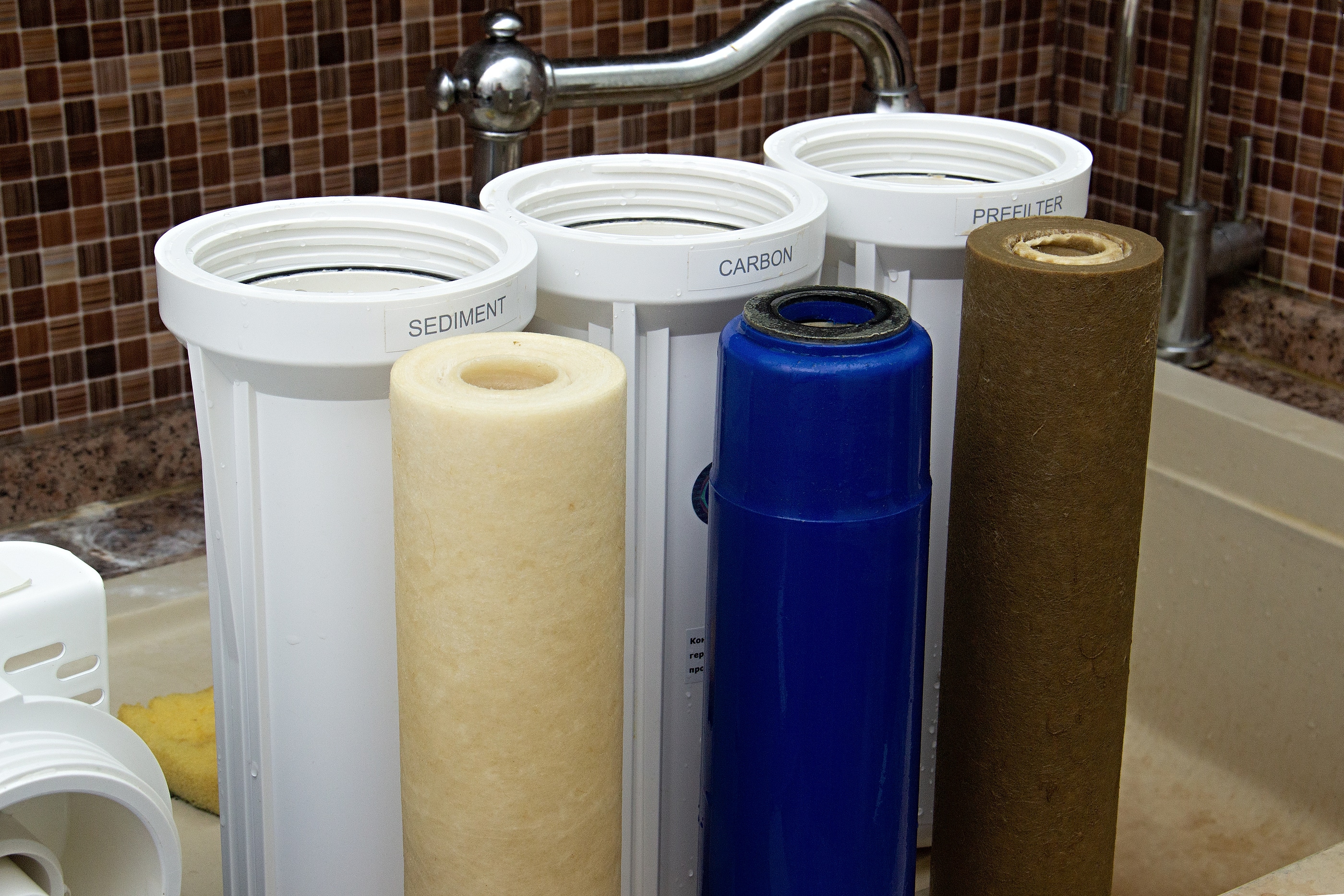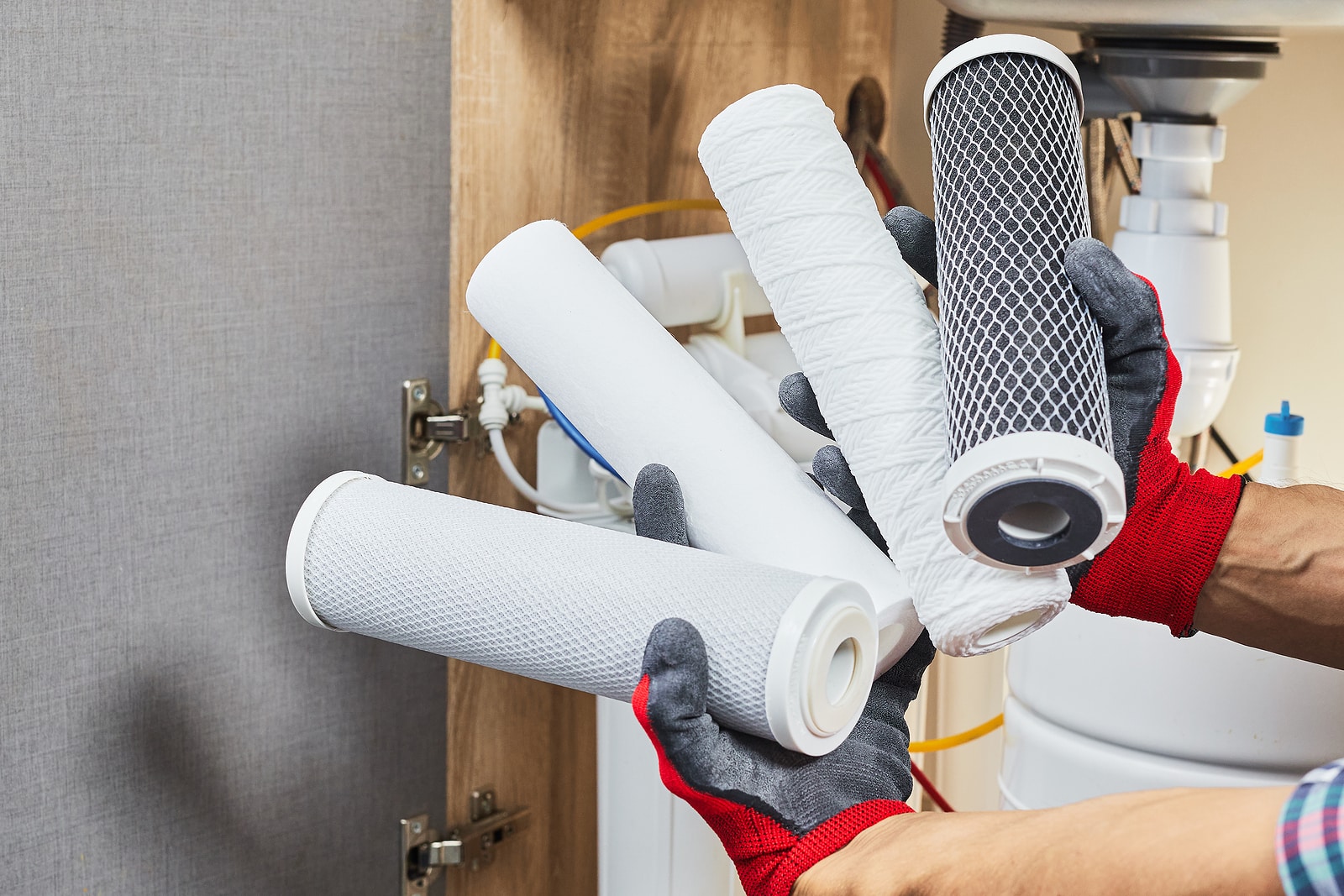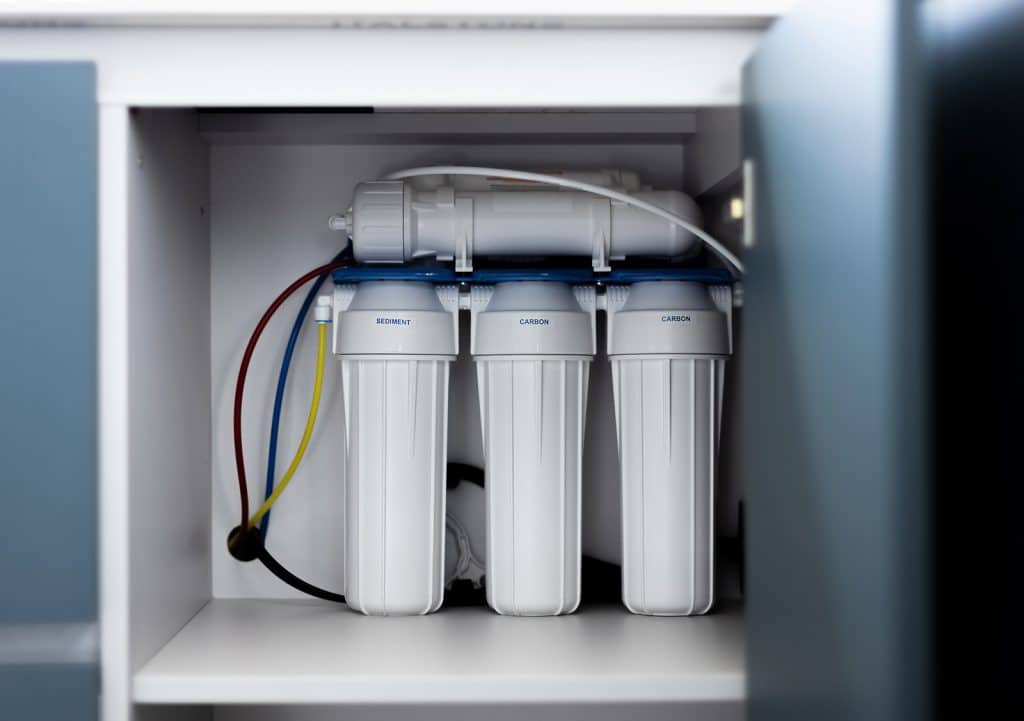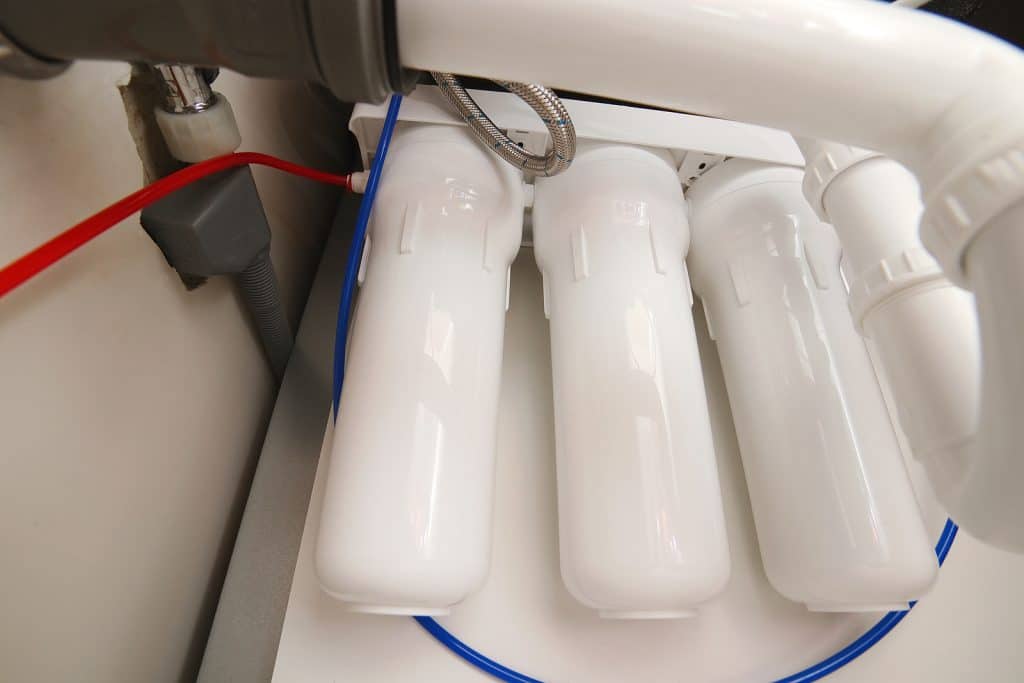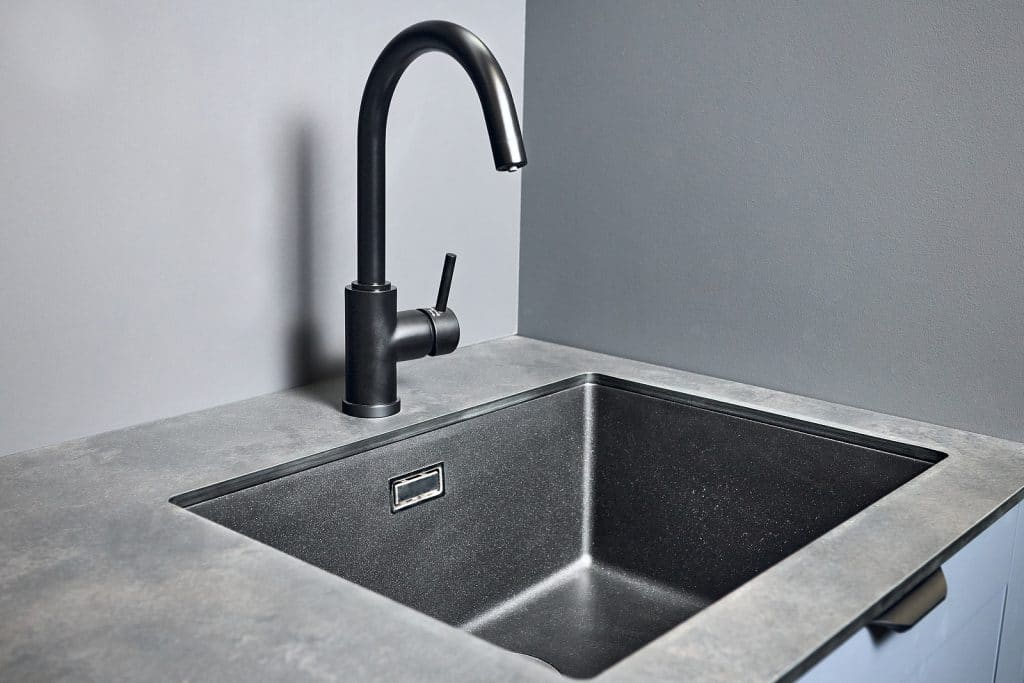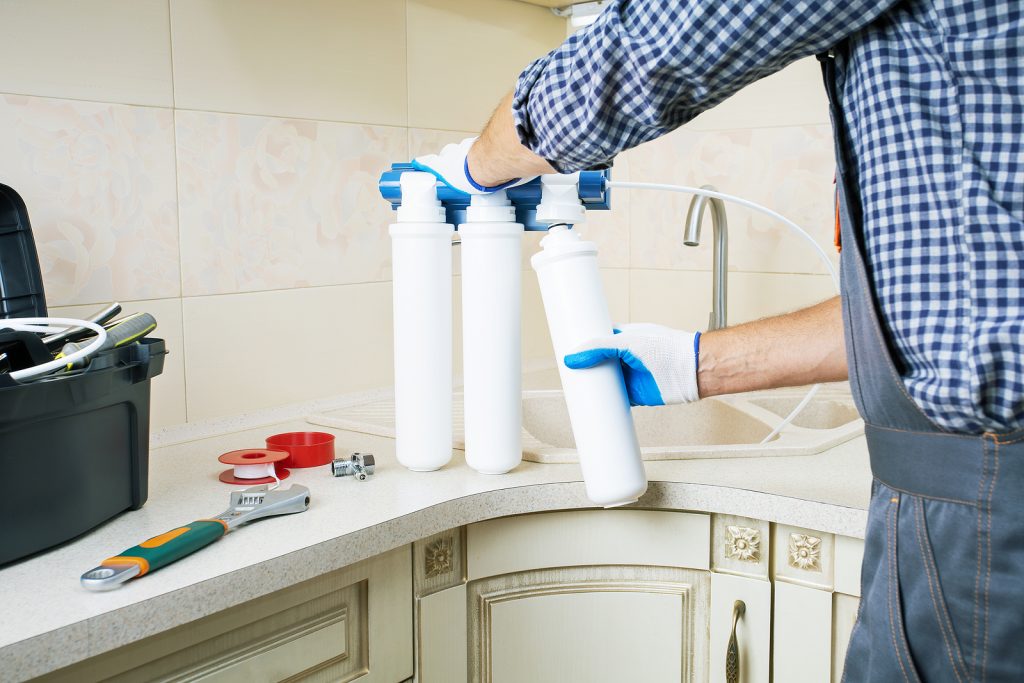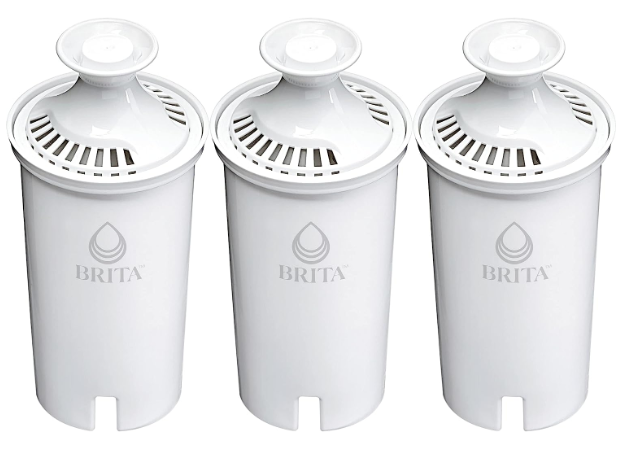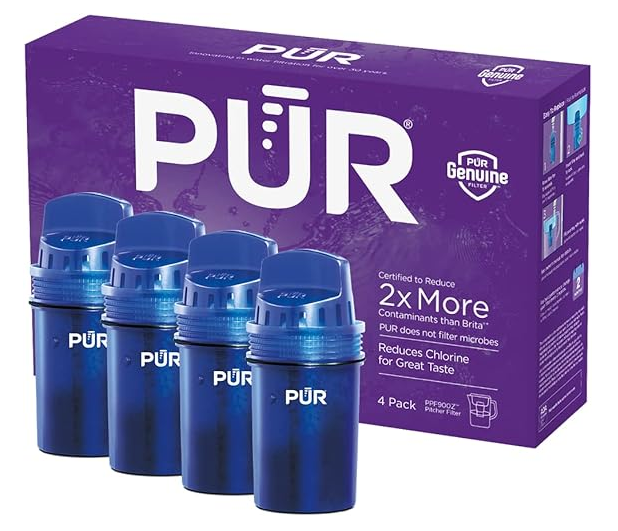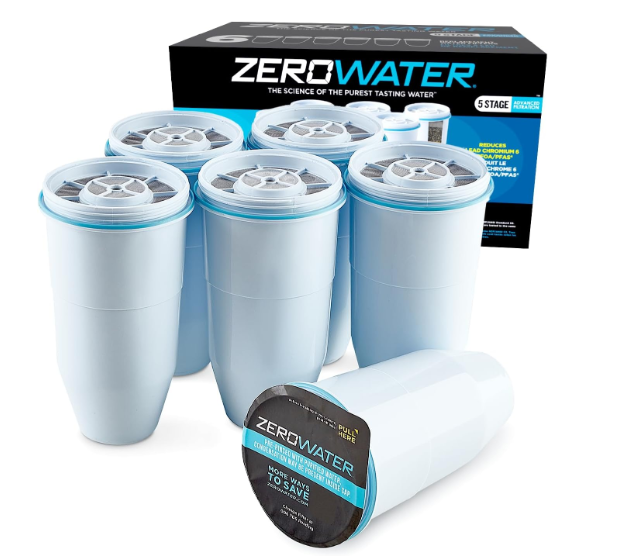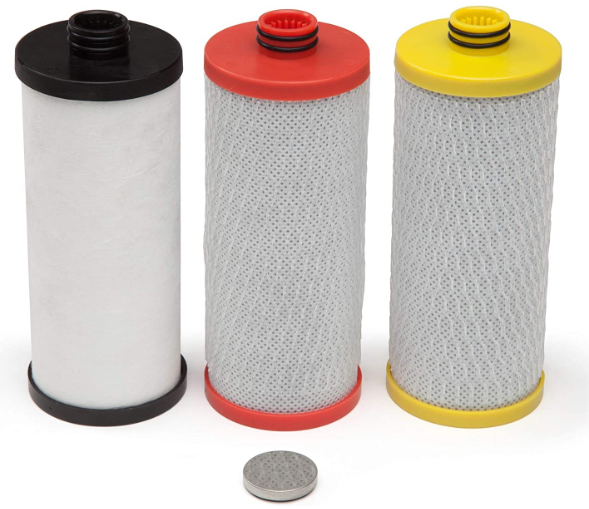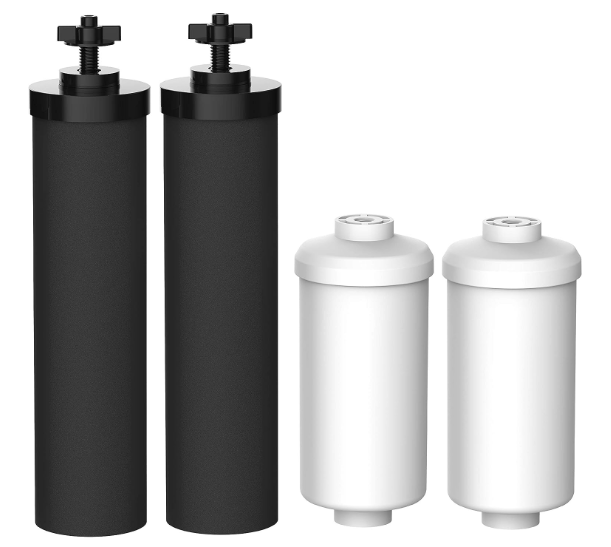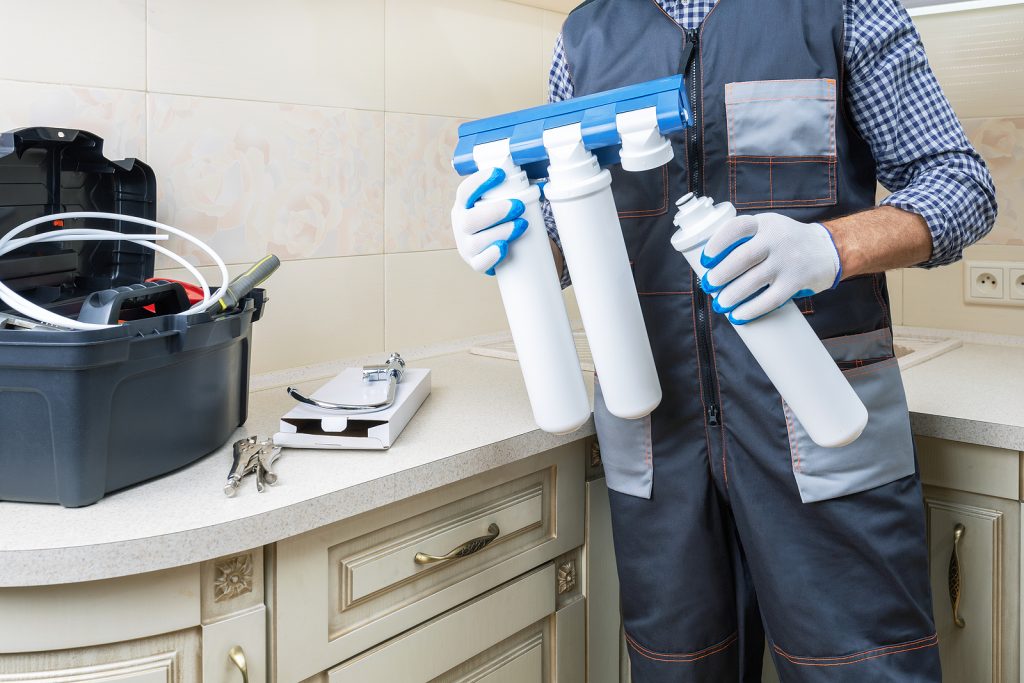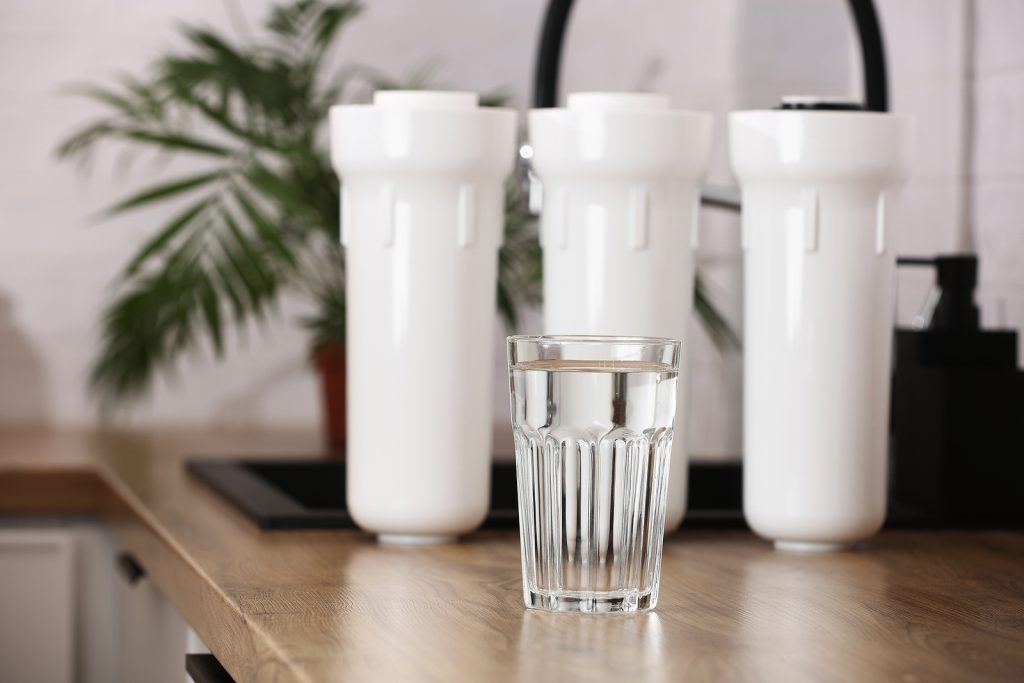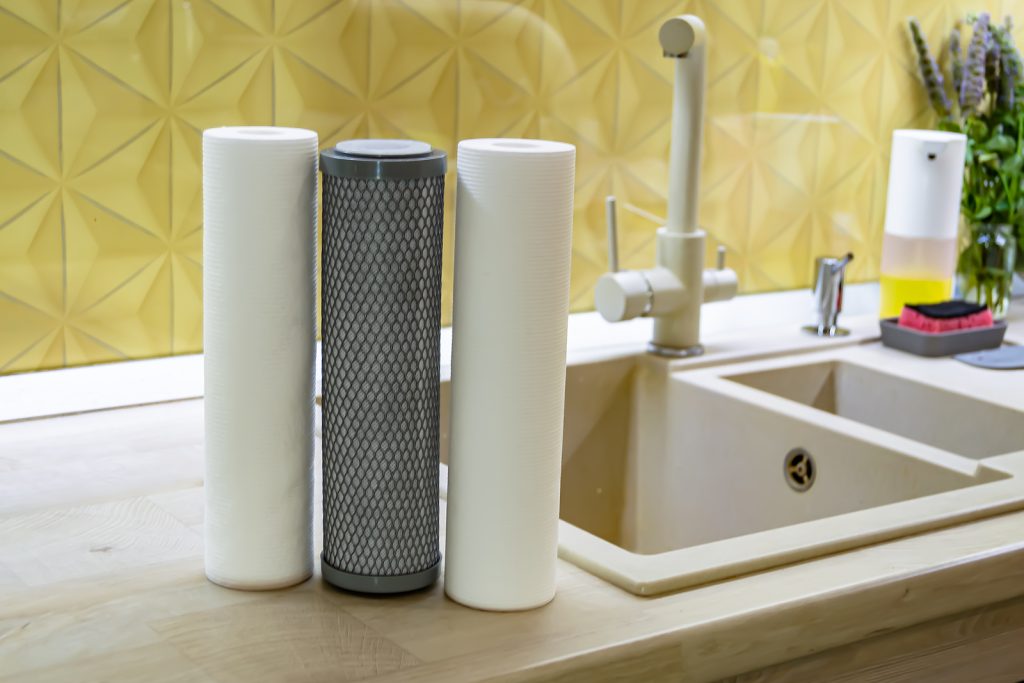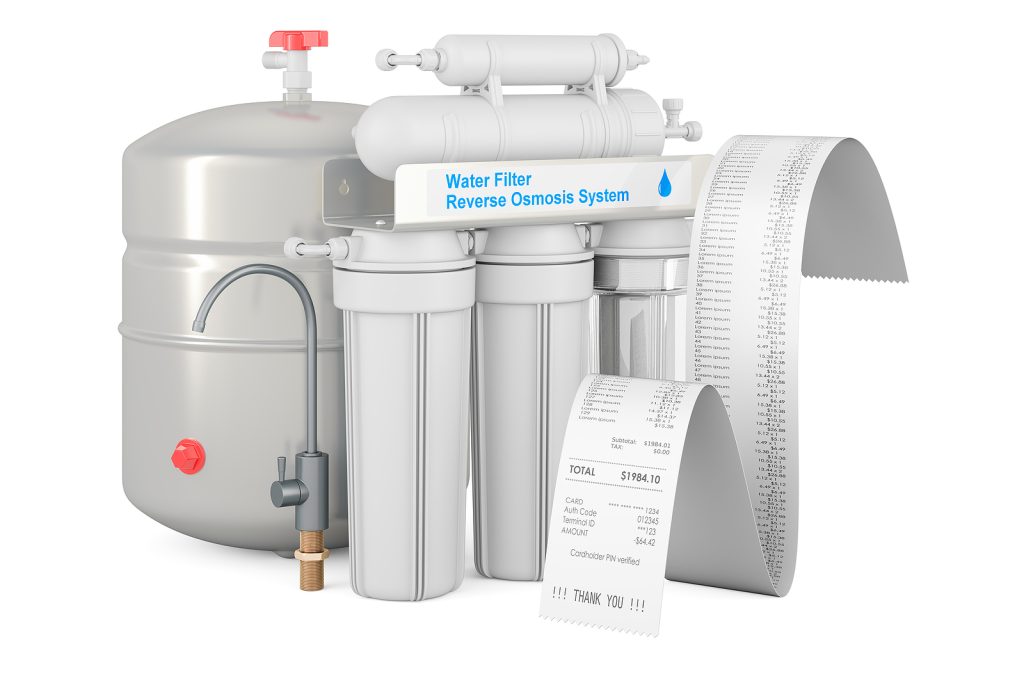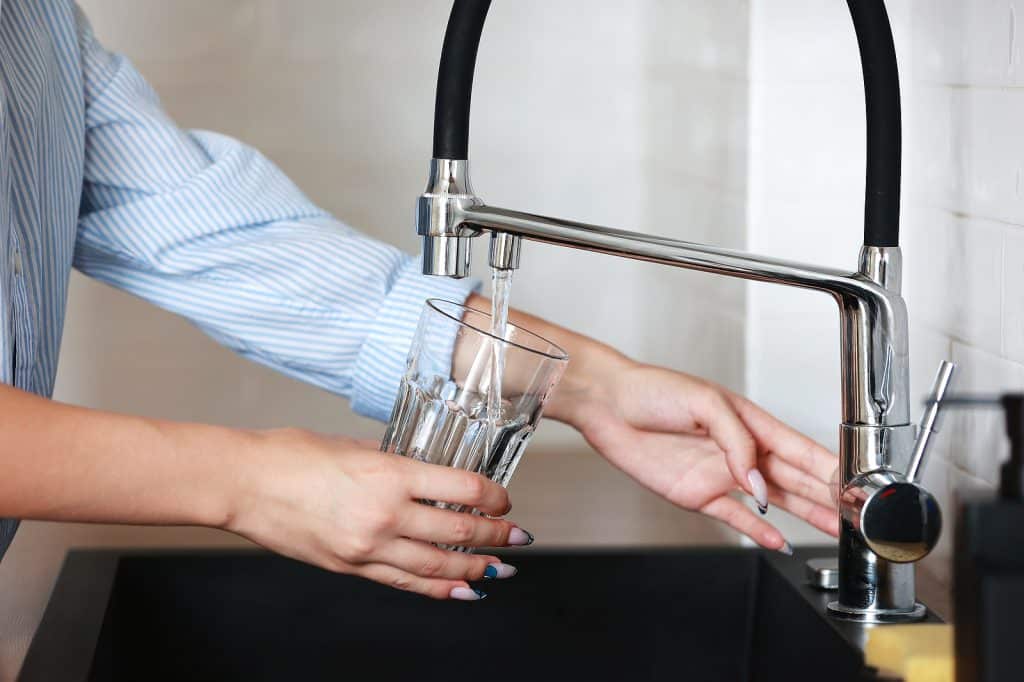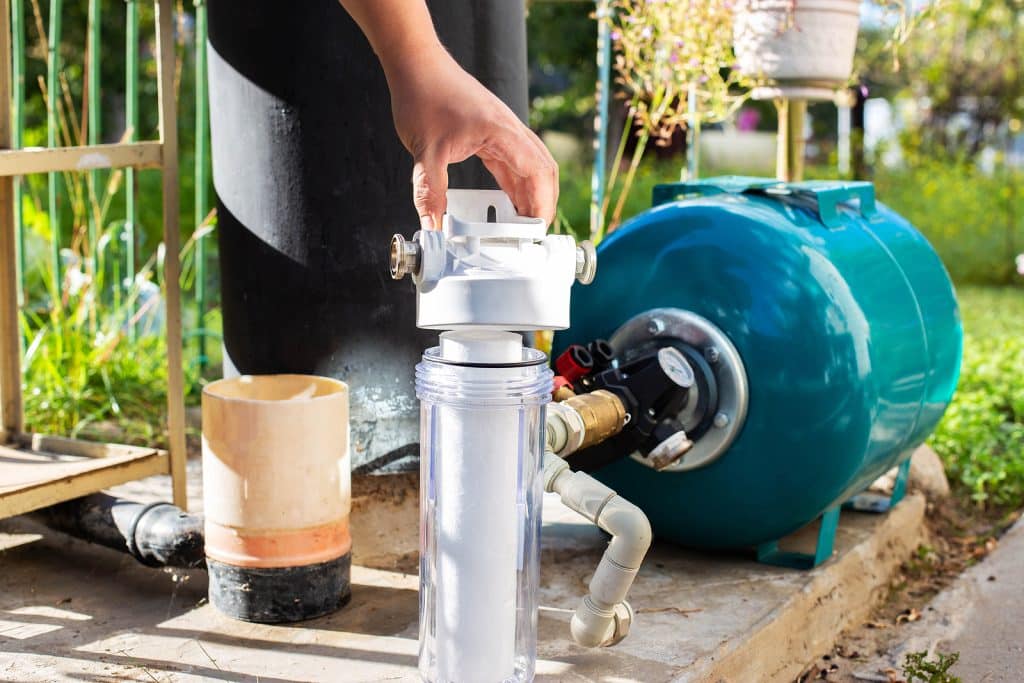Water is essential to life, and access to clean and safe drinking water is crucial for maintaining good health. However, not all water sources are created equal, and many can contain harmful contaminants that cause serious health problems. This is where water filters come in, as they are designed to remove impurities and provide clean and safe drinking water.
When choosing the best water filter, various options are available. The choices can be overwhelming, from basic pitcher filters to advanced reverse osmosis systems. Factors such as water quality, budget, and personal preferences can all play a role in determining the best water filter for an individual’s needs. In this article, we will explore some of the top water filters currently available on the market and provide a comprehensive guide to help readers decide when choosing the best water filter for their home or office.
Understanding Water Filters
What is a Water Filter
A water filter is a device that removes impurities from water employing a physical barrier, chemical process, or biological process. Water filters can be used for various purposes, including improving the taste and odor of drinking water, removing harmful contaminants, and reducing the risk of waterborne illnesses. Water filters come in many different types, including activated carbon, reverse osmosis, ceramic, and ultraviolet (UV) filters. Each type of filter has its strengths and weaknesses, and the best kind of filter for a particular application will depend on the specific needs and requirements of the user.
Why Use a Water Filter
There are many reasons why someone might choose to use a water filter. Some common causes include:
- Improving taste and odor: Water filters can remove unpleasant tastes and odors from drinking water, making it more palatable and enjoyable to drink.
- Removing harmful contaminants: Water filters can remove various harmful contaminants from drinking water, including bacteria, viruses, chemicals, and heavy metals.
- Reducing the risk of waterborne illnesses: Water filters can help reduce the risk of waterborne diseases by removing harmful bacteria and viruses from drinking water.
- Protecting plumbing and appliances: Water filters can help protect plumbing and appliances by removing sediment and other particles that can cause damage over time.
Overall, using a water filter can help improve the quality and safety of drinking water and can provide peace of mind for those concerned about tap water quality.
Types of Water Filters
1. Activated Carbon Filters
Activated carbon filters are air or water filters that use activated carbon to remove impurities and contaminants from the air or water. Activated carbon is a highly porous material treated with oxygen to create a network of tiny pores and crevices that can trap and absorb molecules and particles.
When air or water flows through an activated carbon filter, the contaminants in the air or water are attracted to the activated carbon’s surface and trapped in the tiny pores and crevices. This process, known as adsorption, effectively removes impurities from the air or water.
Activated carbon filters are commonly used in air purifiers, water, and aquarium filters. They effectively remove contaminants, including volatile organic compounds (VOCs), odors, and chlorine in water. They are also commonly used to remove impurities from industrial gases and liquids.
2. Reverse Osmosis Filters
Reverse Osmosis (RO) filters are a type of water filtration system that uses a semi-permeable membrane to remove impurities and contaminants from water. The reverse osmosis process involves forcing water through the membrane at high pressure, separating the water molecules from the pollutants and contaminants too large to pass through the membrane. The result is purified water free from harmful contaminants like bacteria, viruses, minerals, and chemicals.
RO filters are used in homes, offices, and industrial settings to provide clean, safe drinking water. They are also used in bottled water production and the food and beverage industry to remove impurities from ingredients and water used in manufacturing.
One of the advantages of RO filters is that they are highly effective at removing impurities from water. They can remove up to 99% of contaminants, including heavy metals, pesticides, and chlorine. However, this also means they can remove beneficial minerals from the water, so it is essential to ensure that the purified water is re-mineralized before drinking.
Reverse osmosis filters are a reliable and effective way to purify water and ensure it is safe for consumption.
3. Ceramic Filters
Ceramic filters are porous materials made from ceramic materials such as alumina, silicon carbide, and zirconia. They are widely used in various industries, including water treatment, chemical processing, and metallurgy, to remove impurities and contaminants from liquids and gases.
Ceramic filters use the ceramic material’s porous structure to trap particles and contaminants as they pass through the filter. The size of the pores in the ceramic material determines the size of the particles that can be filtered out. This means ceramic filters can be designed to remove specific contaminants, such as bacteria, viruses, or heavy metals.
One of the main advantages of ceramic filters is their durability and resistance to high temperatures and corrosive environments. They can be used in harsh conditions without deteriorating or losing their filtering efficiency. Ceramic filters also have a long lifespan and require minimal maintenance, making them a cost-effective solution for many industries.
In addition to their filtering capabilities, ceramic filters can be used as catalysts in chemical reactions or as supports for catalytic materials. This makes them versatile materials with various applications in various fields.
4. Ultraviolet Filters
Ultraviolet (UV) filters are optical filters designed to block or absorb ultraviolet radiation from the sun. UV radiation can be harmful to human skin and eyes and can also cause damage to certain materials and surfaces over time. UV filters are commonly used in various applications, including photography, eyewear, and industrial processes.
UV filters are typically made from glass or plastic and are coated with a particular material that absorbs or reflects UV radiation. The effectiveness of a UV filter is measured by its UV transmission factor, which indicates the percentage of UV radiation blocked by the filter.
In photography, UV filters are often used to reduce haze and improve the clarity of outdoor shots. They can also help protect camera lenses from scratches and other damage. In eyewear, UV filters protect the eyes from harmful UV rays, which can cause cataracts and other eye problems over time.
In industrial processes, UV filters protect sensitive materials and surfaces from UV radiation, which can cause discoloration, fading, and other types of damage. For example, UV filters may protect paintings, textiles, and other works of art from the damaging effects of sunlight.
Overall, UV filters are essential for protecting human health and preserving the integrity of materials and surfaces over time.
Factors to Consider When Buying a Water Filter
When buying a water filter, there are several factors to consider. Here are three critical factors that can help you make an informed decision.
1. Water Quality
The first factor to consider is the quality of your water. It’s important to know what contaminants are present in your water so that you can choose a filter that will effectively remove them. You can get a water quality report from your local water utility or have your water tested by a certified laboratory. Some common contaminants that you may want to remove include:
- Chlorine
- Lead
- Arsenic
- Pesticides
- Bacteria
Once you know what contaminants are in your water, you can choose a certified filter to remove them. Look for filters certified by NSF International or the Water Quality Association.
2. Filter Lifespan
The lifespan of a water filter is another critical factor to consider. Most filters have a lifespan of several months to a year, depending on usage and the quality of your water. Some filters have indicator lights or other features that will let you know when to replace the filter. It’s essential to replace the filter on schedule to ensure that it continues to remove contaminants effectively.
3. Maintenance Cost
Finally, consider the cost of maintaining your water filter. Some filters require regular replacement of filter cartridges or other parts, which can add up over time. Others may require periodic cleaning or other maintenance. Be sure to factor in the cost of care when choosing a filter.
Considering these factors, you can choose a water filter that will effectively remove contaminants from your water and provide clean, safe drinking water.
Top Water Filter Brands
1. Brita
Brita water filters are a famous brand of water filters that are designed to remove impurities and contaminants from tap water. The filters are made of activated carbon and ion exchange resin, which work together to remove chlorine, lead, and other harmful substances from the water. Brita filters are easy to use and can be installed in various water dispensers, including pitchers, faucet mounts, and water bottles. The filters are designed to be replaced every two months or after filtering 40 gallons of water, whichever comes first.
One of the benefits of using a Brita water filter is that it can help improve tap water’s taste and odor. The filter removes impurities that can affect the taste and smell of the water, making it more enjoyable to drink. Another benefit of using a Brita water filter is that it can help reduce the amount of plastic waste generated by bottled water. By using a reusable water bottle and a Brita filter, consumers can reduce their reliance on single-use plastic bottles and help to reduce the amount of plastic waste that ends up in landfills and oceans.
Brita water filters effectively and conveniently improve tap water quality and reduce reliance on single-use plastic bottles.
2. PUR
PUR water filters are a famous brand of water filters that are designed to remove impurities and contaminants from tap water. The filters are made of activated carbon and ion exchange resin, which work together to remove chlorine, lead, and other harmful substances from the water. One of the benefits of using a PUR water filter is that it can help improve tap water’s taste and odor. The filter removes impurities that can affect the taste and smell of the water, making it more enjoyable to drink.
Another benefit of using a PUR water filter is that it can help reduce the amount of plastic waste generated by bottled water. By using a reusable water bottle and a PUR filter, consumers can reduce their reliance on single-use plastic bottles and help reduce the amount of plastic waste in landfills and oceans. PUR water filters come in various models, including pitchers, faucet mounts, and refrigerator filters. The filters are designed to be replaced every two months or after filtering a certain amount of water, depending on the model.
PUR water filters effectively and conveniently improve tap water quality and reduce reliance on single-use plastic bottles.
3. ZeroWater
ZeroWater water filters are a famous brand of water filters that are designed to remove impurities and contaminants from tap water. The filters use a five-stage filtration process that includes activated carbon, ion exchange resin, and a micron cloth to remove dissolved solids and other impurities from the water. One of the benefits of using a ZeroWater water filter is that it can remove more contaminants than different types of water filters. The five-stage filtration process removes up to 99.6% of dissolved solids, including lead, chromium, and mercury, which can harm human health.
Another benefit of using a ZeroWater water filter is that it can improve the taste and odor of tap water. The filter removes impurities that can affect the taste and smell of the water, making it more enjoyable to drink. ZeroWater water filters come in various models, including pitchers, dispensers, and portable tumblers. The filters are designed to be replaced every two to three months, depending on the model and the amount of water filtered.
ZeroWater water filters are an effective and convenient way to improve tap water quality and remove harmful impurities.
4. Aquasana 3
Aquasana 3 water filters are a famous brand of water filters that are designed to remove impurities and contaminants from tap water. The filters use a three-stage filtration process that includes activated carbon, ion exchange resin, and sub-micron filtration to remove chlorine, lead, and other harmful substances from the water. One of the benefits of using an Aquasana 3 water filter is that it can improve the taste and odor of tap water. The filter removes impurities that can affect the taste and smell of the water, making it more enjoyable to drink.
Another benefit of using an Aquasana 3 water filter is that it can help reduce the amount of plastic waste generated by bottled water. By using a reusable water bottle and an Aquasana 3 filter, consumers can reduce their reliance on single-use plastic bottles and help reduce the amount of plastic waste in landfills and oceans. Aquasana 3 water filters come in various models, including pitchers, faucet mounts, and whole-house filters. The filters are designed to be replaced every six months, depending on the model and the amount of water filtered.
Aquasana 3 water filters effectively and conveniently improve tap water quality and reduce reliance on single-use plastic bottles.
5. Berkey Water Filter System
Berkey Water Filter System is a famous water filter brand designed to remove impurities and contaminants from tap water. The filters use a gravity-fed system that combines activated carbon and ion exchange to remove chlorine, lead, and other harmful substances from the water. One of the benefits of using a Berkey Water Filter System is that it can remove a wide range of impurities, including bacteria, viruses, and heavy metals. The filter is designed to remove up to 99.999% of pathogens, making it an effective tool for ensuring the water is safe to drink.
Another benefit of using a Berkey Water Filter System is that it is portable and can be used in various settings, including camping trips and emergencies. The system does not require electricity or plumbing, making it easy to use anywhere. Berkey Water Filter Systems come in various sizes, ranging from small portable units to larger systems that filter water for an entire household. The filters are designed to be replaced every six months to two years, depending on the model and the amount of water filtered.
Berkey Water Filter Systems are an effective and versatile way to improve tap water quality and ensure it is safe to drink.
Installation and Maintenance of Water Filters
Installation Process
Installing a water filter is a relatively simple process that can be completed by most people with basic plumbing skills. It is essential to follow the manufacturer’s instructions carefully to ensure that the filter is installed correctly and functions properly. Here are the general steps for installing a water filter:
- Turn off the water supply to the house or the area where the filter will be installed.
- Locate the main water line and determine where the filter will be installed.
- Cut the water line and install the filter according to the manufacturer’s instructions.
- Connect the inlet and outlet hoses to the filter.
- Turn the water supply back on and check for leaks.
- Run water through the filter for a few minutes to flush out any air or debris.
Maintenance Tips
Proper water filter maintenance ensures it functions correctly and provides clean water. Here are some maintenance tips to keep in mind:
- Follow the manufacturer’s recommended maintenance schedule.
- Change the filter cartridge regularly according to the manufacturer’s instructions.
- Clean the filter housing periodically to remove any sediment or debris.
- Check for leaks and repair them immediately.
- Test the water periodically to ensure that the filter is working correctly.
- Replace the filter housing or other parts as needed.
Following these installation and maintenance tips ensures that your water filter provides clean and safe drinking water for you and your family.
10 Reasons to Choose the Best Water Filter
As an AI language model, I can provide you with ten reasons why choosing the best water filter is essential:
- Removes Harmful Contaminants: A high-quality water filter can remove harmful contaminants such as bacteria, viruses, chemicals, and heavy metals from your drinking water.
- Improves Taste and Odor: A good water filter can improve the taste and odor of your drinking water by removing impurities that can affect its quality.
- Saves Money: Using a water filter can save you money in the long run by reducing the need to buy bottled water or pay for expensive water delivery services.
- Reduces Plastic Waste: Using a water filter can reduce the amount of plastic waste generated by single-use water bottles.
- Protects the Environment: Using a water filter helps protect the environment by reducing plastic waste and conserving water resources.
- Improves Health: Drinking clean and safe water is essential for good health. A water filter can help ensure your drinking water is free from harmful contaminants that can cause illness.
- Easy to Use: Water filters are easy to use and require minimal maintenance. Replace the filter cartridge periodically to ensure optimal performance.
- Convenient: Having a water filter at home or in the office is convenient and saves time compared to buying bottled water or using other methods to obtain clean water.
- Provides Peace of Mind: Knowing that your drinking water is clean and safe provides peace of mind and reduces concerns about potential health risks.
- Long-Term Investment: A high-quality water filter is a long-term investment that can provide you and your family with clean and safe drinking water for years to come.
Where Can You Find the Best Water Filter
Finding the best water filter can be daunting, given the wide range of options. However, certain factors can help you narrow your search and find the best water filter.
- You need to consider the type of water filter you require. Various water filters, including activated carbon, reverse osmosis, and ultraviolet filters, are available. Each type of filter has advantages and disadvantages, so choosing one that meets your specific needs is essential.
- Consider the contaminants you want to remove from your water. Different water filters are designed to remove impurities, such as chlorine, lead, bacteria, and viruses. You should choose a water filter that is specifically designed to remove the contaminants that are present in your water.
- You need to consider the size of the water filter. The size of the water filter will depend on the amount of water that you need to filter. You may need a more extensive water filter if you have a large family or use a lot of water.
- You need to consider the cost of the water filter. Water filters can range in price from a few dollars to several hundred dollars. You should choose a water filter that is within your budget and meets your needs.
Finally, you need to consider the brand of the water filter. Reputable water filter brands like Brita, PUR, and Aquasana are available. You should choose a brand that is known for producing high-quality water filters.
When Is the Best Time to Buy a Water Filter
Water filters are essential in ensuring our water is clean and safe for consumption. However, with so many available options, it can take time to determine the best time to purchase a water filter. This article will explore the best time to buy a water filter and some factors to consider before purchasing.
The first factor to consider when buying a water filter is the time of year. The best time to purchase a water filter is during the offseason. During the offseason, manufacturers and retailers offer discounts and promotions on water filters to attract customers. For instance, purchasing a water filter during winter or fall can save you much money compared to buying one during summer when the demand is high.
Another factor to consider when buying a water filter is the lifespan of the filter. Most water filters have a lifespan of six months to one year, depending on the usage level and filtered water quality. Therefore, keeping track of the filter’s lifespan and replacing it when necessary is essential. Waiting until the filter has deteriorated will affect water quality and lead to health issues.
The third factor to consider is the quality of water in your area. If you live in a room with hard water, purchasing a water filter with a high filtration capacity is advisable. Hard water contains high levels of minerals such as calcium and magnesium, which can damage appliances and affect the taste of the water. A water filter with a high filtration capacity will remove these minerals and improve water quality.
The fourth factor to consider is the type of water filter. There are different types of water filters, including activated carbon filters, reverse osmosis filters and UV filters. Each type of filter has advantages and disadvantages, and choosing the one that suits your needs is essential. For instance, an activated carbon filter would be ideal if you are looking for a filter that removes chlorine, sediment, and other impurities.
The fifth factor to consider is your budget. Water filters come in different price ranges, and choosing one that fits your budget is essential. However, it is crucial to note that the price does not always reflect the quality of the filter. It is advisable to do some research and read reviews before making a purchase.
The best time to buy a water filter is during the off-season when manufacturers and retailers offer discounts and promotions. It is also essential to consider the filter’s lifespan.
Water Quality Testing
Water quality testing is an essential process that helps to ensure that the water we drink is safe and free from harmful contaminants. A water filter is one of the most effective ways to test water quality. Water filters are designed to remove impurities and pollutants from water, making it safe for consumption. The testing of water filters is a necessary process that helps to determine the filter’s effectiveness in removing contaminants and impurities from water. The testing process involves several steps, including collecting water samples, laboratory analysis, and evaluating the filter’s performance.
The first step in testing a water filter is to collect water samples. The samples are gathered from different sources, including tap water, well water, and surface water. The pieces are then taken to a laboratory for analysis. The laboratory analysis involves testing the water samples for contaminants and impurities, including bacteria, viruses, chemicals, and heavy metals. The tests are conducted using specialized equipment and techniques designed to detect even the slightest traces of contaminants in the water.
Once the laboratory analysis is complete, the next step is to evaluate the water filter’s performance. The filter is installed, and water samples are collected before and after filtration. The models are then analyzed in the laboratory to determine the filter’s effectiveness in removing contaminants and impurities from the water. The filter’s performance is evaluated based on several factors, including the percentage of contaminants removed, the filter’s flow rate, and the filter’s lifespan. The evaluation results determine whether the filter effectively removes contaminants and impurities from the water.
Water quality testing is an essential process that helps to ensure that the water we drink is safe and free from harmful contaminants. The testing of water filters is a critical part of this process, as it helps to determine the filter’s effectiveness in removing impurities and pollutants from water. By testing water filters, we can ensure that we drink clean and safe water, essential for our health and well-being.
Environmental Impact
Water filters are essential for ensuring access to clean and safe drinking water. However, like any other product, water filters have an environmental impact that must be considered. The ecological effects of water filters can be evaluated based on several factors, including the materials used to manufacture the filters, the energy required to produce and transport them, and the disposal of the filters at the end of their life cycle. One of the primary environmental impacts of water filters is the materials used to manufacture them. Many water filters are made of plastic, a petroleum-based product that is not biodegradable. The production of plastic requires a significant amount of energy and resources, and the disposal of plastic waste can hurt the environment.
Another environmental impact of water filters is the energy required to produce and transport them. The production of water filters requires energy, which contributes to greenhouse gas emissions and climate change. Additionally, the transportation of water filters from the manufacturer to the consumer also requires energy and contributes to carbon emissions. Disposing water filters at the end of their life cycle is another environmental impact that must be considered. Many water filters are disposable and cannot be recycled, resulting in landfills. The disposal of water filters in landfills can hurt the environment, as they can take hundreds of years to decompose and can release harmful chemicals into the soil and water.
Several strategies can be employed to mitigate the environmental impact of water filters. One method is using water filters made of sustainable and biodegradable materials. For example, some water filters are made of coconut shells, a renewable and biodegradable resource. Another strategy is to use reusable water filters that can be cleaned and maintained over time. This reduces the need for disposable filters and reduces waste. Another method is to reduce the energy required to produce and transport water filters. This can be achieved by using local manufacturers and suppliers, which reduces the distance that the filters need to be transported.
Additionally, using renewable energy sources to power manufacturing can reduce greenhouse gas emissions and climate change. Finally, the disposal of water filters can be addressed by encouraging consumers to recycle or properly dispose of their filters. Some manufacturers offer recycling programs for their filters, which can help reduce the amount of waste in landfills.
Conclusion
After extensive research and analysis, it is clear that choosing the best water filter depends on individual needs and preferences. A water filter is an essential investment for anyone concerned about the quality of their drinking water. When selecting a water filter, it is necessary to consider factors such as filtration technology, filter lifespan, and maintenance requirements. Some filters are designed to remove specific contaminants, while others offer comprehensive filtration.
Activated carbon filters are a popular choice for their ability to remove chlorine, sediment, and other impurities. In contrast, reverse osmosis filters effectively remove many contaminants, including heavy metals and bacteria. It is also essential to consider the cost of replacement filters and the overall cost of ownership.
While some filters may have a higher upfront cost, they may be more cost-effective in the long run due to longer filter lifespan and lower maintenance requirements. The best water filter meets your needs and provides clean, safe drinking water. Considering the factors outlined in this article, you can make an informed decision and choose a water filter to give you peace of mind and better health.

